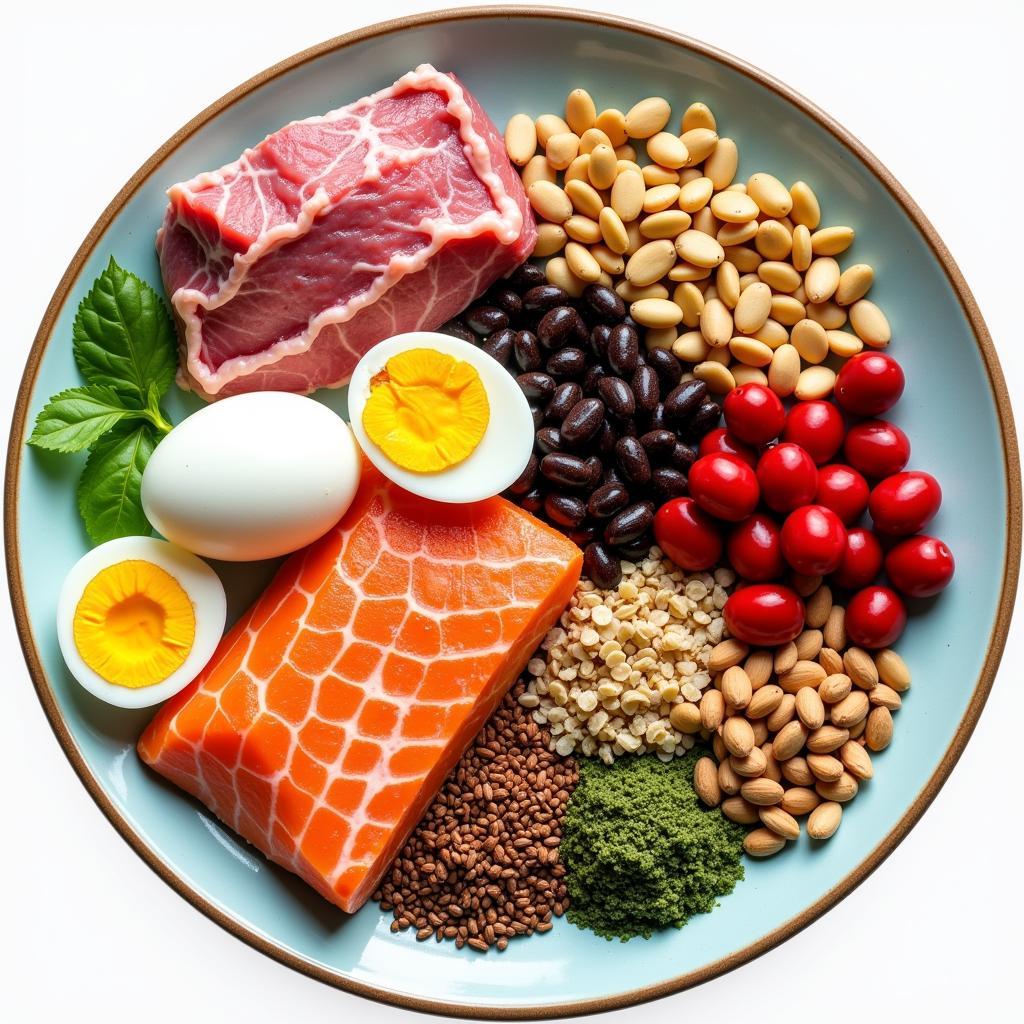Our Bodies Need 20+ Different Kinds to Function
December 15, 2024Our bodies need 20+ different kinds of amino acids to function correctly. These building blocks of protein are essential for everything from building and repairing tissues to making hormones and enzymes. Understanding their importance is crucial for maintaining optimal health and well-being.
Why 20+ Amino Acids Are Essential for Our Bodies
Amino acids are often referred to as the building blocks of protein, and for good reason. They link together to form the proteins that make up our muscles, organs, skin, and hair. But their role extends far beyond just structural support. They also play a vital role in countless bodily functions, including:
- Enzyme production: Enzymes, which catalyze biochemical reactions, are primarily made of protein.
- Hormone synthesis: Many hormones, such as insulin and growth hormone, are protein-based.
- Immune function: Antibodies, which defend against infection, are proteins.
- Nutrient transport: Some proteins carry nutrients throughout the body.
- Neurotransmitter production: Certain amino acids are precursors to neurotransmitters that influence mood and cognitive function.
Essential vs. Non-Essential Amino Acids: What’s the Difference?
Our bodies can produce some amino acids, called non-essential amino acids. However, there are nine essential amino acids that we must obtain through our diet because our bodies cannot synthesize them. These are histidine, isoleucine, leucine, lysine, methionine, phenylalanine, threonine, tryptophan, and valine. Getting enough of these essential amino acids is critical for maintaining good health.
Why are Essential Amino Acids so Important?
Without a sufficient intake of all nine essential amino acids, our bodies cannot effectively build and repair tissues or perform the many other functions that rely on these vital nutrients. This can lead to various health problems, including muscle loss, weakened immunity, and impaired growth and development in children.
How to Ensure You’re Getting Enough Amino Acids
A balanced diet that includes a variety of protein-rich foods is the best way to ensure you’re getting enough of all 20+ amino acids your body needs. Excellent sources of complete proteins, which contain all nine essential amino acids, include:
- Meat (beef, pork, chicken, turkey)
- Fish and seafood
- Eggs
- Dairy products (milk, cheese, yogurt)
- Soybeans and soy products (tofu, tempeh)
- Quinoa
What if I’m a Vegetarian or Vegan?
Vegetarians and vegans can also get all the essential amino acids by combining different plant-based protein sources. For example, combining legumes (beans, lentils) with grains (rice, wheat) can provide a complete protein profile.
The Impact of Amino Acid Deficiency
While rare in developed countries, amino acid deficiencies can occur, particularly in individuals with restrictive diets or certain medical conditions. Symptoms of deficiency can vary depending on the specific amino acid lacking but may include:
- Fatigue
- Weakness
- Decreased immunity
- Digestive problems
- Slowed growth in children
 Amino Acid Rich Foods
Amino Acid Rich Foods
Conclusion: Prioritizing Amino Acids for Optimal Health
Our bodies need 20+ different kinds of amino acids to function, and ensuring adequate intake is vital for overall health and well-being. By incorporating a variety of protein-rich foods into our diets, we can provide our bodies with the building blocks they need to thrive.
FAQ
- What are the 9 essential amino acids? Histidine, isoleucine, leucine, lysine, methionine, phenylalanine, threonine, tryptophan, and valine.
- What happens if I don’t get enough essential amino acids? You may experience fatigue, weakness, decreased immunity, and other health problems.
- What are good sources of complete proteins? Meat, fish, eggs, dairy products, soybeans, and quinoa.
- Can vegetarians and vegans get enough amino acids? Yes, by combining different plant-based protein sources.
- Are amino acid supplements necessary? A balanced diet usually provides sufficient amino acids, but supplements may be helpful in specific situations.
- How can I determine if I have an amino acid deficiency? Consult with a healthcare professional for proper diagnosis and guidance.
- What are the symptoms of an amino acid deficiency? Symptoms can vary but may include fatigue, weakness, and decreased immunity.
For any assistance, please contact Phone Number: 0915117113, Email: fanyamal@gmail.com Or visit our address: To 3 Kp Binh An, Phu Thuong, Vietnam, Binh Phuoc 830000, Vietnam. We have a 24/7 customer support team.